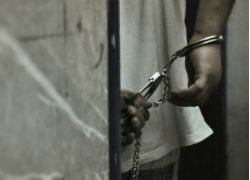
(CFR)
Mexico is wrapping another year in the eight-year process that has been set aside to transform the country’s criminal justice system entirely. In 2008, the Mexican government passed a series of constitutional and legislative reforms that would effectively change the country’s entire penal system. The 2008 judicial reform gives Mexico until 2016 to switch from a secretive paper-based system to oral trials, bolstering the defendant’s due process rights by ensuring the presumption of innocence and better access to adequate defense counsel. The new reforms give police a larger role in criminal investigations placing a larger emphasis on evidence used during trials.
Mexico’s criminal justice system has been criticized for being exceptionally antiquated and ineffective. Advocates have been fighting for years to overhaul inadequate investigation, trial, and detention systems known to encourage torture and allow hardened criminals to walk free. Proponents of the change claim that the reform is vital to the success of the country’s ongoing drug war.
But the process has been painstakingly slow, and some critics say the federal government is not moving as quickly as it can to pass the necessary revised criminal procedure code. Last year, President Calderón sent a proposal of the federal code to Congress, but the Senate failed to pass it. The new, revised criminal code would unify and advance the implementation of the 2008 reforms. The country is technically halfway through the transition phase, but less than half of Mexico’s states have taken steps to change their justice systems, and the policies put in place vary. For example, the state of Chihuahua has been a pioneer by implementing its own state level shift in 2007, a year before Mexico enacted the federal reforms.
One of the biggest obstacles lies in the fact that states using the new oral trials-based system cannot yet pass cases on to the Federal Attorney General’s Office (Procuraduría General de la República) for review. The Attorney General’s Office does not yet have the new criminal justice system fully implemented because Mexico has not passed the revised federal criminal code. So far, only 18 of Mexico’s 32 states and entities have passed their own criminal procedure code, 11 of which have advanced to actually implementing and conducting oral trials.
The remaining three years of transformation require not only federal and state legislative reforms. A successful transition will also entail investing billions of dollars to remodel courtrooms, training Mexico’s roughly forty thousand active lawyers and thousands of judges, and reworking the law school curriculum. This undertaking will require the political resolve and concentrated focus of Mexico’s next administration, especially to overcome the older generation of jurists who are resisting the change.
Gaby Corica is a 3L at DU law, a Staff Editor for the Denver Journal for International Law and Policy, and a General Editor for The View From Above.


